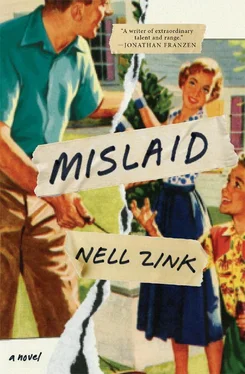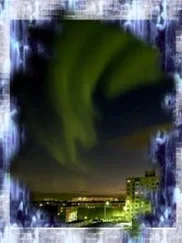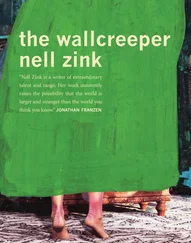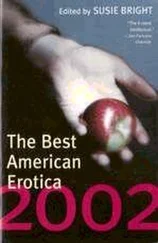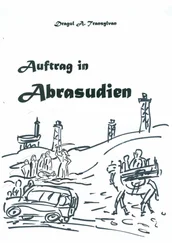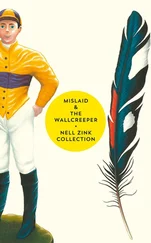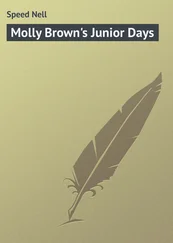“Trust him,” Karen said. “You don’t want to smell his feet.” Flea lowered her hands and backed away, and Temple exhaled.
He felt his body lighten and withdraw from the dangers that surrounded it. He stretched out his arms and felt stillness and birdsong. Beyond the edge of the tennis court was the lawn, and beyond the lawn was the meadow, and beyond the meadow stretched the forest where you could hear the huge crested woodpeckers hard at work building nests for the squirrels. Beyond them lay the back bay, the cities, the oceans, the continents. The earth, endless and replete. The sun, straight up, a blinding hole leading to an immense void.
Temple stared at it unflinching and had an insight that stuck in his mind forever after. Behold the Sheltering Sky, he thought. I was understanding it wrong. It’s not a shelter because it protects you. It’s a way out. A sanctuary, a place you can go when things get out of control. Say for example you cripple yourself hitting a tennis ball and there’s one girl’s sweaty crotch cradling your head and another girl’s perfumed hair tickling your legs and nothing in between them but your dick and nobody watching but the one girl’s mom and the other girl’s boyfriend: There’s no need to run away. You can ascend to the region of blue sky and great wandering shadows. The shelter that received the risen Christ and Port in The Sheltering Sky, that comforted the mortally wounded Prince Andrei and the young W. E. B. Du Bois. Now I know.
Temple closed his eyes and his vision took on a very definite shape. He saw his winged soul appear risen to Karen. She would never doubt his innocence. Even his crucifixion wouldn’t worry her in the least. She was an angel, one of the birds of the air of the Sheltering Sky, born to lead him there. He would fly through space and time with his Shadow at his side, in front of him, behind him — it didn’t matter where she was, she would always be linked to him, always respond to him.
He woke up (teenage boys fall asleep with astonishing suddenness in the most unlikely situations) and saw her face above his, upside down. She was not thinking of herself, but of him, like Mary in a pietà. He felt a need to increase the distance, a sudden conviction that if there were more space between them, something worth having might grow.
That night he crept to her bedside and said, “Shadow. Shadow!”
“What?”
“I’m in love with you!”
“Go to sleep!”
H is third year at UVA, Byrdie declared as his major an exotic conglomerate unknown in the history of The University or any other. He asked for an extra year to finish because he needed engineering credits. He saw his decision as the right and proper thing to do. It was planning that would save the world, not commerce. Economic growth driven by investment would exhaust Earth’s resources in a matter of years.
His theories were strongly influenced by the Kipling novel Captains Courageous, which he had found on a shelf at Lee’s parents’ house. A spoiled boy, heir to a railroad empire, learns the value of technological progress on a sailboat pursuing shoals of cod around the North Atlantic. Byrdie got to thinking: With today’s technology, the fishermen in the book could have hunted the cod to extinction. Cod now would be fabled creatures like the great auk. It was going to take clear-eyed young visionaries such as himself, powered by hereditary fortunes and thus immune to the forces of greed and speed, to pioneer the new antitechnology technologies that would restore helplessness and ineptitude to their rightful place as Tools for Conviviality (the Ivan Illich book had been Meg’s). For instance, a return to narrow, bumpy city streets with trolley tracks and bike lanes instead of parking would send quality of life through the roof. The elderly and handicapped could ride in the bike lanes on golf carts. Byrdie called his imaginary planning bureau “R&D,” for Regression and Deceleration or maybe Density. He had already drafted a scheme to eliminate the west end of Richmond entirely, integrating it with the desolate north side of downtown and doubling the density to achieve quality of life squared, and gotten an A-plus.
Lee’s fantasies of feudal power had always been confined to strict geographical limits. On further analysis he found them even more appealingly modest and humble. Had any Fleming ever aspired to anything more than to create a pleasing environment for himself and his friends? Had Flemings interfered in the lives of others since being knocked off their high horse at the close of the 1860s and/or 1960s? He thought Byrdie might be a clinical case. After all, the mother had been insane.
He informed Byrdie that his social engineering ambitions betrayed all the delusions of grandeur that you might expect from the son of a poet. Then, pretending to hesitate to break the bad news, he pointed out that the hereditary fortune was a bit of a question mark. Lee was, he said, broke. His salary was a drop in the bucket. He didn’t own the house he lived in. His parents were spending his inheritance right and left on increasingly expensive vacations, tootling around Norwegian fjords on first-class ferryboats and dabbling in the Himalayas. Exclusive inside knowledge of the world financial system, acquired from Lyndon LaRouche for $5,000 a year, had not stopped them from buying a town house in Georgetown right before the stock market crash. He was starting to wonder whether they hadn’t mortgaged everything they owned. Byrdie might be well advised to pursue a career that involved such niceties as an employer.
The irony was not lost on Byrdie. He listened to Lee’s complaints and said he would take them under advisement.
Dee had feared the best she could afford for Temple was community college, but when he began getting letters from historically white colleges all over the South, soliciting his application and offering scholarships on the basis of his PSATs, her mind was made up. She said, “Temple is going to The University. If it was good enough for Thomas Jefferson, it’s good enough for my son.”
Self-confident Temple dashed off his essay in an afternoon. Karen’s application caused her weeks of grief. After abandoning several memoir-like drafts about various aspects of her life, which seemed more incoherent the deeper she got into it, she wrote about her ambitions. When the past is hard to explain, it’s best to concentrate on the future. She wrote that she wanted to work hard and get good grades and pick an interesting major.
Charlottesville being far away, the admissions office had a local alumnus interview the applicants. He wasn’t a professional, just a public-spirited businessman prepared to meet the children of country-club acquaintances and recommend their admission. He volunteered a Saturday afternoon and borrowed the librarian’s office adjoining the high school media center.
Karen felt insecure, but it had little to do with her qualifications to attend college. It was puberty. Just turned fifteen, she had attained maximum unfamiliarity with her own body. She always expected to grow up boyish like Meg, but she took after Lee’s mother instead: an eye-popping hourglass in miniature, but nervous about it, with skinny legs and bitten nails.
For the interview, she wore a blue double-knit suit, bought at a thrift shop in an ancient gas station, that had been hand-sewn before her birth for an even smaller woman. She mumbled, feeling shy, and left with tears in her eyes. The interviewer looked down at his form and tried to formulate a way of calling her childlike, yet trashy. He regarded the box checked “black” as evidence of functional illiteracy. Her grades did not impress him. This, he said to himself, is a corn-fed heifer who lets teachers feel her up.
Читать дальше
Конец ознакомительного отрывка
Купить книгу
